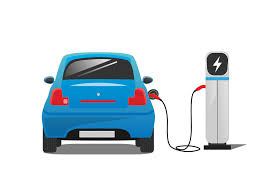EU to Announce Tariff Rate Plan for Chinese Electric Vehicles
Later this week, the European Union (EU) is expected to release its tariff rate plan for Chinese electric vehicles (EVs) as it aims to control the influx of low-cost, subsidized imports.
At present, the EU imposes a standard 10% duty on imported EVs, but plans to temporarily increase this fee for Chinese EVs starting July 4.
Expected Increase in Tariffs
Citi analysts anticipate the tariff rate could surge to 25-30%, from the current 10%, with a 40% probability of a hike to 30-50%. Meanwhile, Anthony Sassine, Senior Investment Strategist at KraneShares, predicts tariff rates will fall between 10% and 20%, possibly leaning towards the higher end following the recent European Parliament elections.
These expectations coincide with Ursula von der Leyen, President of the European Commission, seeing her party, the European People’s Party, gain more seats. Von der Leyen has been advocating for a “de-risking” strategy towards Beijing.
Investigation into Chinese EV Subsidies
The European Commission launched an investigation in October into the subsidies received by Chinese EV makers, suggesting such subsidized imports could “pose an economic threat to the EU’s EV industry.”
Despite potential tariffs, Sassine believes Chinese manufacturers will remain competitive due to their efficiency and advanced methods. China’s EV industry has blossomed with the help of government incentives, which have sparked concerns of overcapacity in the U.S. and Europe.
In March, U.S. Energy Secretary Jennifer Granholm warned that China could flood the U.S. electric-vehicle market with cheap products. In response, the U.S. hiked tariffs on Chinese EV imports in May to 100%, a substantial increase from the previous 25%.
Turkey’s Tariffs on Chinese EVs
On June 8, Turkey announced a 40% additional tariff on imports of vehicles from China.
Chinese EV Makers Expand in Europe
In May, Chinese EV manufacturers Xpeng and BYD exhibited their models in Europe, and Nio opened a new showroom in Amsterdam, despite the ongoing EU investigation. Furthermore, BYD announced plans to construct a factory in Hungary, and Chery entered a joint venture with Spain’s Ebro-EV Motors to develop new EVs.
Cedomir Nestorovic, a professor at ESSEC Business School, noted that numerous Chinese manufacturers are currently exploring the EU market and will strive to avoid potential tariffs. According to Sassine, Chinese automakers, including Nio, are establishing factories in Europe to circumvent these tariffs.
Original Story at www.cnbc.com
